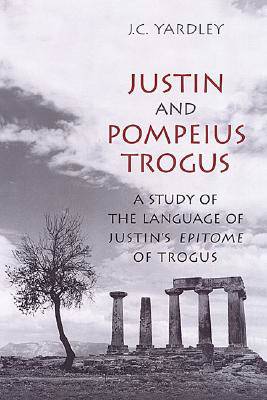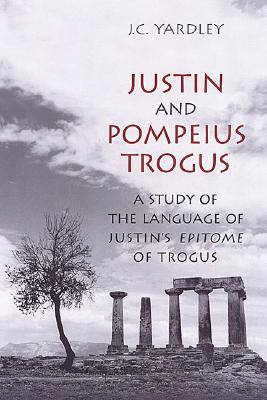
- Afhalen na 1 uur in een winkel met voorraad
- Gratis thuislevering in België vanaf € 30
- Ruim aanbod met 7 miljoen producten
- Afhalen na 1 uur in een winkel met voorraad
- Gratis thuislevering in België vanaf € 30
- Ruim aanbod met 7 miljoen producten
Omschrijving
Around 200AD, Marcus Junianus Justinus produced an abridged or 'epitomized' version of the Philippic Histories of the Augustan historian Pompeius Trogus. In doing so, he omitted all he did not find either intrinsically interesting or of use for historical examples. Over the centuries that followed, the abridgement eclipsed the original work in popularity, to the extent that Trogus' original work vanished and only Justin's version survived.
In this investigation of the language of the Epitome, the first in almost a century, J.C. Yardley examines the work to establish how much of the text belongs to Trogus, and how much to Justin. His study compares words and expressions used in the Epitome with the usage of other Roman authors, and establishes areas where diction is similar to Augustan-era Latin and less in use in Justin's time. Yardley's extensive analysis reveals that there is more of Justin in the work than is often supposed, which may have implications for the historical credibility of the document. Yardley also demonstrates how much Trogus was influenced by his contemporary Livy as well as other Roman authors such as Sallust and Caesar, and how the Epitome reveals the influence of Roman poetry, especially the work of Virgil.
Specificaties
Betrokkenen
- Auteur(s):
- Uitgeverij:
Inhoud
- Aantal bladzijden:
- 305
- Taal:
- Engels
- Reeks:
- Reeksnummer:
- nr. 41
Eigenschappen
- Productcode (EAN):
- 9780802087669
- Verschijningsdatum:
- 6/12/2003
- Uitvoering:
- Hardcover
- Formaat:
- Genaaid
- Afmetingen:
- 163 mm x 235 mm
- Gewicht:
- 630 g

Alleen bij Standaard Boekhandel
Beoordelingen
We publiceren alleen reviews die voldoen aan de voorwaarden voor reviews. Bekijk onze voorwaarden voor reviews.











